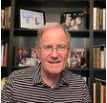Having thoroughly dissed the Times Magazine’s Chuck Klosterman in
yesterday’s posting, let me say this: it is of no great moment whether the
author of “The Ethicist” is Klosterman or someone else. I don’t really care
because it’s not my problem. And neither is it important whether I agree with the viewpoint expressed. Whoever the author may be, and whatever the comments s/he happens to write, “The Ethicist” does a great service by getting
people to think ... assuming that they will.
What sets me off, though, is that Sunday's entry (“Foul Ball”) is typical of much public discourse
today: full of blustering opinion and short on fact. Opinions are not facts, no matter how well informed they are. They are like noses: everybody has one. And they are often based on nothing but blind
faith, what the Bible calls “the assurance of things hoped for; the conviction
of things not seen.”[1]
It’s because opinions are not facts that
we don’t permit witnesses (other than experts) to give opinion testimony in
court. It’s because opinions are not facts that my mother hated discussions of
religion or politics, both being matters of belief and hope, not provable
truth. It’s because opinions are not facts that I refuse to dispute with people
on subjects that one or the other of us hasn’t researched carefully.[2]
 |
| Thomas Paine |
To
argue with a person who has renounced the use of reason is like administering
medicine to the dead.” – T. Paine
It’s a sad fact that intellectual discourse has suffered in the age of 24-hour news cycles, sound bites, and social media. Biases, preconceptions and anger tend to trump logic. Critical thinking skills disappear. People forward tripe over and over again on the Internet assuming it to be true. Politicians play to their so-called “base” while stating partial truths or out-right falsehoods.
To counter this type of creeping
mendacity, in public affairs especially, “it is the responsibility of intellectuals to speak
the truth and to expose lies.”[3] But apparently being intellectual
is not to the liking of some politicians. Former senator Rick Santorum, for example, said college is for snobs. And after the last presidential
election another former candidate called an audience of intellectuals a “death panel.”[4] I assume she was trying to be
funny, but who knows?
.jpg) |
| Click to enlarge |
To be an intellectual today is to be un-American,
apparently. But this is actually nothing new; ignorance and anti-intellectualism have plagued us since the first days of the Republic. (See quote at right.)
The best argument against democracy “is a five minute conversation with the average voter,” Winston Churchill once said, and he's right.
The best argument against democracy “is a five minute conversation with the average voter,” Winston Churchill once said, and he's right.
None of this should prevent people from
voicing their opinions, of course, or from voting on the basis of their (uninformed) beliefs. They are within their rights to do so. But unless gullible, ignorant voters
make every attempt to get better informed, the situation will only get worse
between now and November 6 ... and beyond.
Maybe Chuck Klosterman should write about
the ethical implications of that someday instead of worrying about foul balls.
_____
[1] See post
of Nov. 1, 2010 concerning faith and the Casey Anthony verdict.
[2] See, e.g.,
posts of Oct. 19-20, 2010 regarding the Breakfast Bloviator’s opinions on
health reform.
[3] Chomsky, “The Responsibility of Intellectuals,” N.Y. Review of Books, Feb. 23, 1967.
[4] Sarah Palin, Gridiron Club Dinner, Washington, DC (Dec.
5, 2009).
- 0 -
_______________________________
“There is not one human problem that could not
be solved
if people would simply do as I advise.”
- Gore Vidal
(1925-2012)

No comments:
Post a Comment